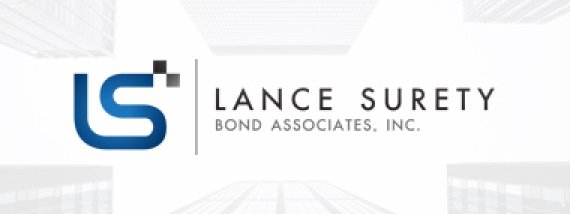How to Get Your Freight Broker License – A Step-By-Step Guide
Freight shipping is an indispensable part of modern life, and there is a complex ecosystem to support it. An integral piece of this support structure is the freight broker.
In order to work as a freight broker, you’ll need to obtain a Freight Broker License from the Federal Motor Carrier Safety Administration (FMCSA), a division of the U. S. Department of Transportation (DoT). Once you’ve met the FMCSA’s freight broker requirements and secured your license, you’ll be able to start linking drivers with shippers and building your new career as a freight broker.
To help you on your way to launching a successful freight broker business, we’ve put together a step-by-step guide on how to become a freight broker.
What is a Freight Broker?
A freight broker acts as a middle person between an entity that wishes to transport property and the motorized carrier who transports it. Unlike freight forwarders, freight brokers don’t touch the actual cargo themselves, instead they act in a more logistical role.
Freight brokers take a percentage of each shipment they arrange as payment. The more truckers they work with and the more cargo they move, the more they’ll earn.
How to Get a Freight Broker’s License
Step 1: Take a Course
New brokers aren’t required to take a training course before getting their license. However, undergoing relevant freight broker training prior to launching your business can give you a real advantage. Most training programs will guide you through the ins and outs of securing your license. They’ll also teach you everything you need to know about finding clients, arranging shipments and meeting local and national regulations.
Some freight broker and freight agent training programs also include sessions on marketing, sales and rate setting. Taking an in-person or online course that covers these areas can give you the tools you need to succeed and put you one step ahead of the competition. Freight broker training courses are available online and in cities across the country.
Step 2: Choose a Business Structure
When setting up a freight brokerage business, you’ll need to choose a structure for your new venture. The structure you select will have an impact on how your business operates, so it’s a good idea to consult with an accountant or attorney before you decide.
Step 3: Submit an OP-1 Form
The next thing you’ll need to do is apply for broker authority. You can do this by submitting Form OP-1 to the FMCSA. When filling in the form, you’ll need to provide general business information like your company name and address. You’ll also need to inform the FMCSA of your type of operating authority. This will be either “Broker of Household Goods” or “Broker of Property (except Household Goods).” You’ll need to pay a $300 fee for each type of license you apply for.
Step 4: Get a BMC-84 Surety Bond
All freight brokers need to post a BMC-84 surety bond in order to secure their broker license. The bond requirement is there to ensure brokers comply with state and federal law and to help protect future clients from financial losses that could result from fraudulent business practices.
The required amount for a freight broker bond is $75,000. However, you’ll only need to pay a small percentage of this amount in order to get bonded. This fee is known as the bond cost or bond premium and is determined by your credit history. The higher your credit score, the less you’ll pay. If you have a poor credit history, you may need to apply to a special bad credit program in order to secure your bond.
Step 5: Select a Process Agent
All freight brokers are required to designate a process agent in each state in which they have an office and write contracts. A process agent is simply someone who agrees to accept any court papers being served on your behalf if someone brings legal proceedings against your business.
You can either use individual agents in each state or select a national company that offers process agent services throughout the US. You’ll need to file Form BOC-3 with the FMCSA to declare your choice of process agents.
Step 6: Register Through the Unified Registration System
One of the last things you’ll need to do to become a licensed freight broker is to register with the FMCSA through the Unified Registration System (URS). This system combines all the forms you need to submit for your application into a single online application form.
Step 7: Learn the Rules
Once you’ve completed your URS application, you’ll need to learn all the relevant state regulations on interstate commerce in the locations where you plan to do business. You can find out more by contacting each state’s regulatory agency.
Licensing Requirements to Become a Freight Broker
In order to start a new business in the freight industry and become a freight broker, you’ll need to meet a number of licensing requirements. The most important requirements are:
- Establish a business structure
- Submit an OP-1 form
- Get a BMC-84 surety bond
- Select a process agent
- Register the brokerage with the FMCSA
What Are the Advantages of Being a Licensed Freight Broker?
There are a number of advantages to becoming a licensed freight broker. The career gives you the opportunity to be your own boss, determine your own hours and benefit from your own hard work. Startup costs and overheads are incredibly low and you can work from home, so you won’t need to commute to the office ever again.
The main advantages of becoming a licensed freight broker are:
- Becoming your own boss
- Maximize your earning potential
- Low startup costs
- Low overheads
- Working from home
How Much Does it Cost to Get a Freight Broker License?
When you apply for your freight broker license, you’ll need to pay an application fee of $300. If you want to register as both a motor carrier and freight broker, you’ll need to pay this freight broker license cost twice, bringing the total up to $600.
How Much do Licensed Freight Brokers Make?
The average salary for a freight broker in the US is $62,105. The amount you earn will depend on where you’re based and how many hours you put into your business. You may be able to boost your earnings by working with freight agents. Agents are intermediaries who work to find loads and connect them with truckers. Agents don’t have the same registration requirements as brokers and so need to work with a licensed broker in order to be compliant with the law.
- Fast and Secure Application
- Nationwide Coverage
- Approval in Minutes
- Money Back Guarantee
Recommended Articles
- Fast and Secure Application
- Nationwide Coverage
- Approval in Minutes
- Money Back Guarantee
- Image

- Image

- Image

Lance Surety Bond Associates, Inc. is a surety bond agency based out of southeastern Pennsylvania that is able to write all surety bond types in all 50 states. We are dedicated to servicing all of our customers' surety bonding needs throughout the country and guarantee competitive rates, timely responses, and unparalleled customer service.





